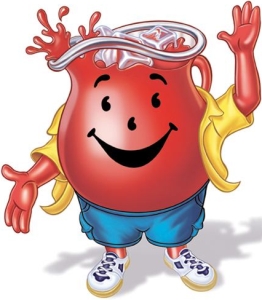Groupon, we have the answer…
by Holland-Mark | October 25, 2011
But something tells us this is not what you were hoping to hear. Let’s start at the beginning.
Two things happening at Holland-Mark right now. First, we’re in deep with the start up community. As of last night, the MassChallenge 2011 Awards sent a new batch of financed and confident entrepreneurs out into the world, which was a promising reminder that Boston is not shying away from innovation and opportunity. (We even have a district to prove it!) Secondly, we’ve been drinking Fred Reichheld’s Kool-Aid vis-s-vie the revised and expanded The Ultimate Question 2.0. To be clear, we’ve believed in the power of NPS since the Harvard Business Review introduced it to us years ago, but the release of Reichheld’s latest edition has a timeliness that makes it all the more relevant. There’s a simple system for measuring, structuring, and understanding opportunity and we’ve only begun to scratch the surface of what NPS as a system can do for businesses of all sizes.
But how can NPS guide decisions for how business like ours (businesses in the business of consulting other businesses) approach opportunities? It’s obvious that it’s more than a tool for measurement– meant more as a framework for guiding smart business decisions and positive growth– but is it possible that NPS could tell us what is a bad business altogether?
Groupon. The daily deal phenomenon has attacked our inboxes, removed our ability to assign accurate value to any good or service, and raised our standards while removing our desire to be… loyal. In retrospect, it’s easy to ask the question, “in an age where loyalty is becoming the most valuable customer attribute, can a business that promotes trial over relationship really be viable?” and even easier to say, “NO!” but the truth is that we wanted cost and experience to have a different relationship, and that led us all to discount that driving down cost can dramatically increase volume… and the experience is soon to follow.
So, what does this have to do with Mr. Reichheld and NPS? Everything. If you’ve read the book (either one), you’re familiar with the concept of good and bad profits. Bad profits are those made when the end game is profit and the means to that end does not take into account the emotional, intellectual, or experiential toll on the customer. Good profits, on the other hand, are those made with the willing–and happy– consent of the customer. In other words, it’s the age old adage, “you have to spend money to make money,” but with a twist. You have to spend money improving the lives of your customers and in turn they will spend money improving your bottom line. How? With loyalty that begets an enthusiastic referral to friends and family.
But Groupon is, by design, a bad profit for any business, specifically any small business. By investing money in short returns, companies dilute the experience for existing customers and in turn lose their good profits and promote short-term bad profits with disloyal “brand tourists.” Imagine if every company who offered a Groupon instead invested those losses in substantial perks for existing customers? The loyalty that it would engender would, theoretically, lead to sustained growth and profits.
Another way to look at it is through the lens of promoters, detractors, and passives. The elements of NPS. The “Groupon Gamble” is that passives– or those who are unfamiliar with the brand– can become promoters. Unfortunately, the reality of business is that with a massive influx of unmanageable business, you’ve gambled your promoters to passives and your passives to detractors, resulting in a business with upset regulars and a slew of strangers bad mouthing the experience all over the internet.
The good news is that it’s not over for Groupon. There is still ample opportunity for them to invest in good profits for their customers, the retail stores who trusted them to help build their business. Instead of diluting stock, perhaps investing in a system to help small business owners manage the boom in business and actively convert new faces into loyal customers. Essentially, Groupon could reposition itself as a good profit opportunity for businesses if they are willing to invest in good profits themselves. It’s a cycle that, if taken seriously, can benefit everyone– even investors in the beleaguered start up. The question is whether or not anyone is willing to step out of line and suggest radical change to promote a radical change in outcome?
Besides us.
Related articles
- Do Businesses Really Like Groupon? (blogher.com)
- Groupon, so who exactly profits here? (coverboom.com)
- Groupon Down 30% (coverboom.com)

